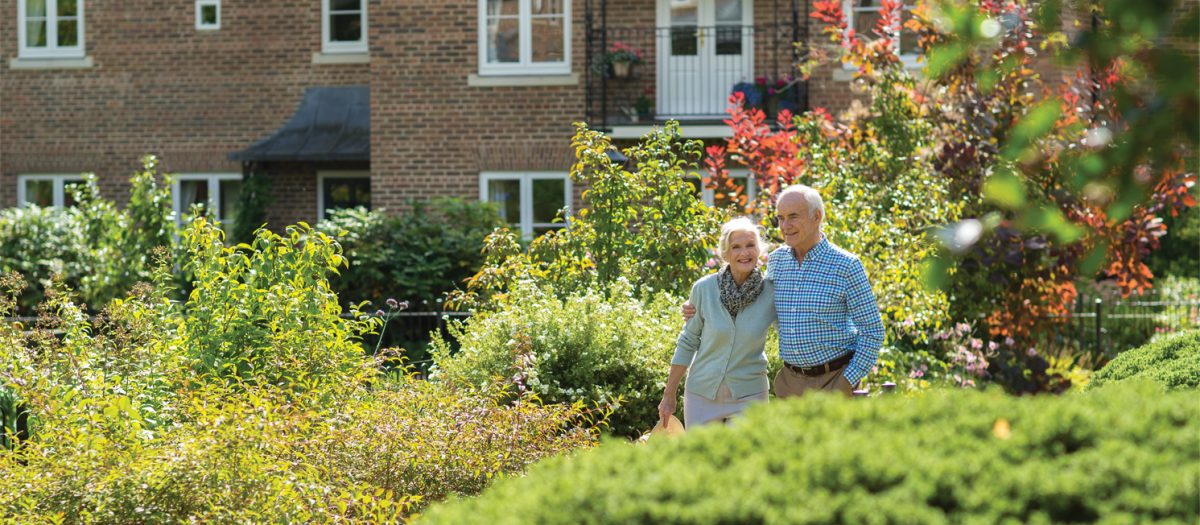Buying a Home on a Retirement Estate
Go backPublished on www.thewealthscene.com 8th August 2019.
Why the Small Print Matters

Retirement estates or villages are developments built specifically for older people.
The services offered on each development will vary – some estates offer a discreet estate manager service for older people who want to continue to live independently in private homes.
They tend to be in good locations with landscaped grounds, and offer a luxury lifestyle with some support but generally no care. By contrast, some larger villages will offer more on-site facilities, and nursing care available when required. What they have in common is that the properties are likely to be sold leasehold.
John Lavin of Cognatum, a key player in the retirement estate sector, says, “Dedicated retirement properties are becoming increasingly popular with the younger over-55s, people wanting to make a future-proof investment but who are still leading active and interesting lifestyles.
It’s widely understood by buyers that it’s a requirement of purchase that at least one resident must be over 55, but buyers should also be aware that leasehold properties will necessarily have an accompanying lease which will contain a number of clauses, some of which may be unexpected.
“The first thing to check is the length of lease. Leases can obviously be extended, but the process can be time-consuming and expensive. Be cautious of a lease that has under 100 years remaining as this can have a significant impact on the resale value.
“Buyers should be very clear about the costs associated with owning a retirement property. They are necessary expenses, and a responsible way of protecting owners’ investments, protecting them from unexpected costs. But it’s important buyers are aware of them, and include them in annual budgeting.
Service charge:
“An ongoing annual service charge should cover the cost of running, maintaining and repairing the grounds and buildings, any onsite staff and communal facilities. For those on a fixed income, a service charge is a good thing, it means they won’t ever get an unexpected bill for roof repairs, new windows, or any other outgoing associated with the structure or grounds.
Ground rent:
“Many freeholders charge a ground rent, recognition that the freeholder owns the land. Historically, any ground rent charged has tended to be minimal. But in recent years, some developers have exploited the practice of charging ground rent, inserting clauses into leasehold contracts that mean ground rents increase year on year. There’s nothing wrong with ground rent in principle, but make sure your solicitor checks the lease very carefully for exploitative ground rent practices.
Reserve fund:
“This will be an annual charge and will cover irregular costs or significant items of planned maintenance. A good estate will work on a rolling cycle, so the amount in the reserve fund will vary depending on where it currently is in the cycle. Check how the reserve fund is organised and assure yourself you’re happy with the arrangement.
“Careful budgeting is particularly important for the retired whose finances tend to be fixed, so these charges do allow residents to plan, and avoid unwelcome surprises as there might be with owning a freehold property. What’s vitally important is that buyers are fully conversant with the extent of the associated costs before committing themselves.
“While finances are a key consideration, costs aren’t the only element of the lease that buyers should be aware of. There are likely to be a range of clauses within the lease that are designed to protect both resident and landlord. Do check these carefully to be sure you’re buying into a development that suits your lifestyle. For example, most retirement estates allow pets, but don’t assume – check!
“Your solicitor should walk you through a lease before you buy a property, but it’s a late stage of the buying process to be getting surprises. The best plan is to ask if you can see a lease before you make an offer, and read the detail carefully before committing yourself.”
For more information:
01491 821170
property@cognatum.co.uk